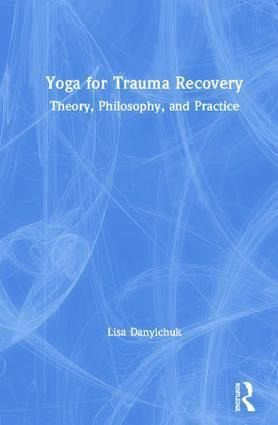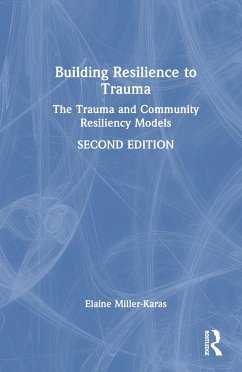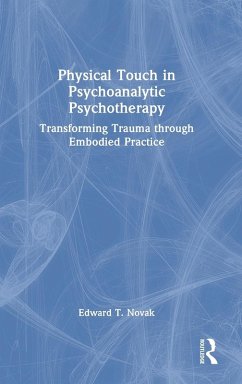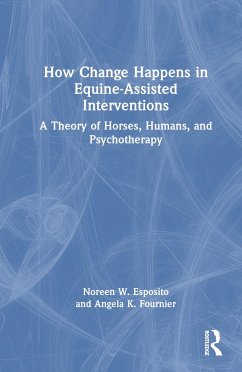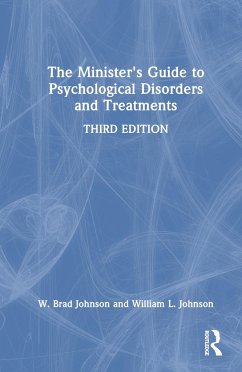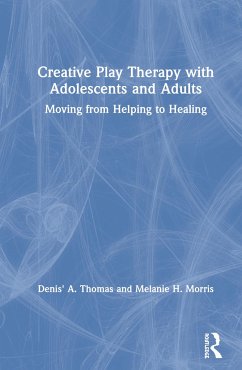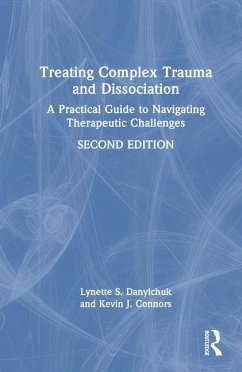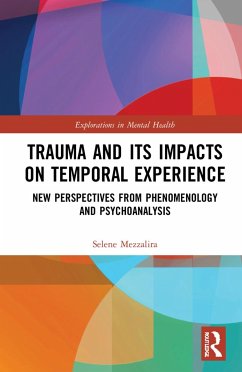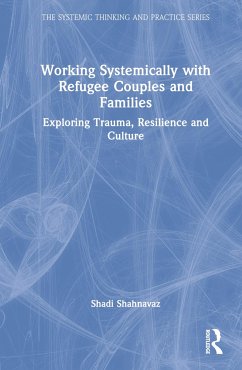Versandkostenfrei!
Versandfertig in 1-2 Wochen
Weitere Ausgaben:

PAYBACK Punkte
71 °P sammeln!





Yoga for Trauma Recovery outlines best practices for the growing body of professionals trained in both yoga and psychotherapy and addresses the theoretical foundations that tie the two fields.
Lisa Danylchuk, LMFT, E-RYT, is the founder of The Center for Yoga and Trauma Recovery in Oakland, California. A graduate of UCLA and Harvard University, she offers training on yoga and trauma treatment internationally. She serves on both the board and the UN Task Force for the International Society for the Study of Trauma and Dissociation. Learn more about Lisa and her work at www.howwecanheal.com.
Produktdetails
- Verlag: Routledge
- Seitenzahl: 222
- Erscheinungstermin: 18. März 2019
- Englisch
- Abmessung: 235mm x 157mm x 17mm
- Gewicht: 479g
- ISBN-13: 9781138707191
- ISBN-10: 1138707198
- Artikelnr.: 56894228
Herstellerkennzeichnung
Libri GmbH
Europaallee 1
36244 Bad Hersfeld
gpsr@libri.de
"As the practice of healing through yoga becomes increasingly mainstream, it is essential that mental health professionals and yoga teachers develop skills in bridging yoga philosophy and trauma theory. This book does a great service to those interested in the growing fields of yoga service and trauma-informed yoga, and I highly recommend it to anyone seeking to cultivate peace, healing, and empowerment through mindful movement." -Seane Corn, yoga teacher and co-founder of Off the Mat, Into the World®
"Yoga for Trauma Recovery provides an accessible description of how yoga can be an effective therapeutic tool in the treatment of trauma. In this volume, Lisa Danylchuk effectively integrates classical yoga teachings and philosophy
"Yoga for Trauma Recovery provides an accessible description of how yoga can be an effective therapeutic tool in the treatment of trauma. In this volume, Lisa Danylchuk effectively integrates classical yoga teachings and philosophy
Mehr anzeigen
with contemporary psychotherapy and neuroscience. Based on her clinical experiences she provides compassionate examples of how yoga can foster recovery from trauma. By emphasizing how yoga, via breath and bodily movement, exercises the neural regulation of visceral organs, the reader is informed that yoga is an enabler of healing mechanisms that originate in the body and not from external agents."-Stephen W. Porges, PhD, distinguished university scientist, Kinsey Institute, Indiana University Bloomington
"This is a compelling volume filled with the author's personal experiences as a teacher and clinician. It contains stories of heartbreak and resiliency as well as valuable information on the various physical, psychological, and physiological responses to traumatic events. Lisa Danylchuk addresses stress in both adaptive and maladaptive forms and articulates how our thoughts about stress affect our experience of it. She touches the entirety of our being and what it means to be human-when hurting as well as when in health."-Carrie Owerko, senior level Iyengar teacher, Laban movement analyst, and functional range conditioning mobility specialist
"This is a compelling volume filled with the author's personal experiences as a teacher and clinician. It contains stories of heartbreak and resiliency as well as valuable information on the various physical, psychological, and physiological responses to traumatic events. Lisa Danylchuk addresses stress in both adaptive and maladaptive forms and articulates how our thoughts about stress affect our experience of it. She touches the entirety of our being and what it means to be human-when hurting as well as when in health."-Carrie Owerko, senior level Iyengar teacher, Laban movement analyst, and functional range conditioning mobility specialist
Schließen
"As the practice of healing through yoga becomes increasingly mainstream, it is essential that mental health professionals and yoga teachers develop skills in bridging yoga philosophy and trauma theory. This book does a great service to those interested in the growing fields of yoga service and trauma-informed yoga, and I highly recommend it to anyone seeking to cultivate peace, healing, and empowerment through mindful movement." -Seane Corn, yoga teacher and co-founder of Off the Mat, Into the World®
"Yoga for Trauma Recovery provides an accessible description of how yoga can be an effective therapeutic tool in the treatment of trauma. In this volume, Lisa Danylchuk effectively integrates
"Yoga for Trauma Recovery provides an accessible description of how yoga can be an effective therapeutic tool in the treatment of trauma. In this volume, Lisa Danylchuk effectively integrates
Mehr anzeigen
classical yoga teachings and philosophy with contemporary psychotherapy and neuroscience. Based on her clinical experiences she provides compassionate examples of how yoga can foster recovery from trauma. By emphasizing how yoga, via breath and bodily movement, exercises the neural regulation of visceral organs, the reader is informed that yoga is an enabler of healing mechanisms that originate in the body and not from external agents."-Stephen W. Porges, PhD, distinguished university scientist, Kinsey Institute, Indiana University Bloomington
"This is a compelling volume filled with the author's personal experiences as a teacher and clinician. It contains stories of heartbreak and resiliency as well as valuable information on the various physical, psychological, and physiological responses to traumatic events. Lisa Danylchuk addresses stress in both adaptive and maladaptive forms and articulates how our thoughts about stress affect our experience of it. She touches the entirety of our being and what it means to be human-when hurting as well as when in health."-Carrie Owerko, senior level Iyengar teacher, Laban movement analyst, and functional range conditioning mobility specialist
"This is a compelling volume filled with the author's personal experiences as a teacher and clinician. It contains stories of heartbreak and resiliency as well as valuable information on the various physical, psychological, and physiological responses to traumatic events. Lisa Danylchuk addresses stress in both adaptive and maladaptive forms and articulates how our thoughts about stress affect our experience of it. She touches the entirety of our being and what it means to be human-when hurting as well as when in health."-Carrie Owerko, senior level Iyengar teacher, Laban movement analyst, and functional range conditioning mobility specialist
Schließen
Für dieses Produkt wurde noch keine Bewertung abgegeben. Wir würden uns sehr freuen, wenn du die erste Bewertung schreibst!
Eine Bewertung schreiben
Eine Bewertung schreiben
Andere Kunden interessierten sich für



